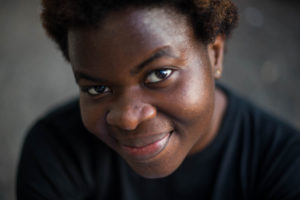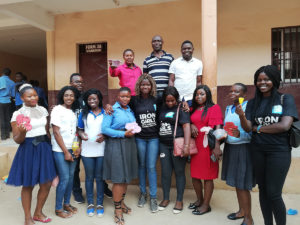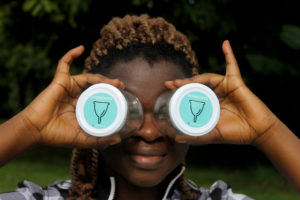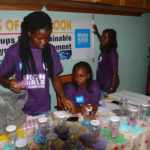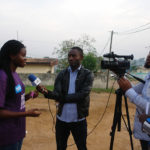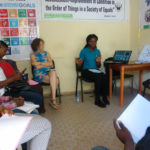Reusable menstrual supplies: A symbol of freedom
Chi Brenda (’21, Cameroon) came to EARTH University in hopes of becoming a leader of change and an accomplished agricultural scientist. Not long after arriving, she learned the importance of resilience. She trained herself to listen patiently to her peers, who hailed from over 30 countries, as well as adapt to cultures, beliefs, and daily routines that were different from her own. Embracing her resilience, she decided to take advantage of everything that would promote personal growth.
And grow she did. She grew as a leader and as a student of agronomy – but also as a woman. During her youth, Brenda hated being female. Once a month, whenever her period came, she would seethe about why life in her body had to be so painful, so uncomfortable, so “dirty”. While menstruating, Brenda would skip school – as so many adolescent females do in Cameroon and other countries. During the annual seven-month drought season, she would trek several kilometers to reach the closest river. Even though it was often contaminated, her shame made her feel even filthier. The river was the only place she could cleanse herself.
In her first year at EARTH, Brenda participated in a class discussion about the pollution produced by disposable pads and tampons – and how vital it is to find sustainable, inexpensive, and easily accessible alternatives for menstruating bodies across the globe. One classmate mentioned the benefits of menstrual cups, inspiring Brenda to change her own habits and start using one. It wasn’t easy for her. Brenda comes from a place where the stigmas around virginity and sexuality are seemingly indomitable, and where the lack of education makes women face huge roadblocks to their self-understanding and proper menstruation management.
Brenda yearned to share her knowledge and proclaim the convenience offered by the cups and reusable pads with the struggling women of her country. Thanks to the help of the nonprofit Iron Kids of the World, the project Iron Girls of Cameroon was born. Brenda received training on sexuality, menstrual science, and communication. She traveled to Cameroon and organized workshops at a school and in rural areas to introduce women to alternative methods. Cíclica, a Costa Rica-based sustainable menstruation company, obtained cups so Brenda could take them to Cameroon and distribute them to women in poverty for free. In addition, EARTH supplied the financial resources to travel to different areas of the country and provide a nutritious meal to workshop attendees. The Student Affairs Office advised Brenda throughout the entire process. Brenda says that the University has educated her to be able to approach communities without fear and to always seek ways of making life more compassionate and less wasteful.
- Brenda shares her knowledge in Cameroon.
According to UNESCO, one in 10 African girls misses at least four academic days a month from menstrual stigma. This taboo, coupled with limited access to menstrual-hygiene products, is one of the primary reasons why many of them drop out of school and don’t attend university. Brenda wants girls and women to become empowered to know their bodies, to feel free to get educated, and to say goodbye to their fears. She knows the power that wields. That’s why she dreams of growing her project: for a more sustainable world, full of truly free women.

